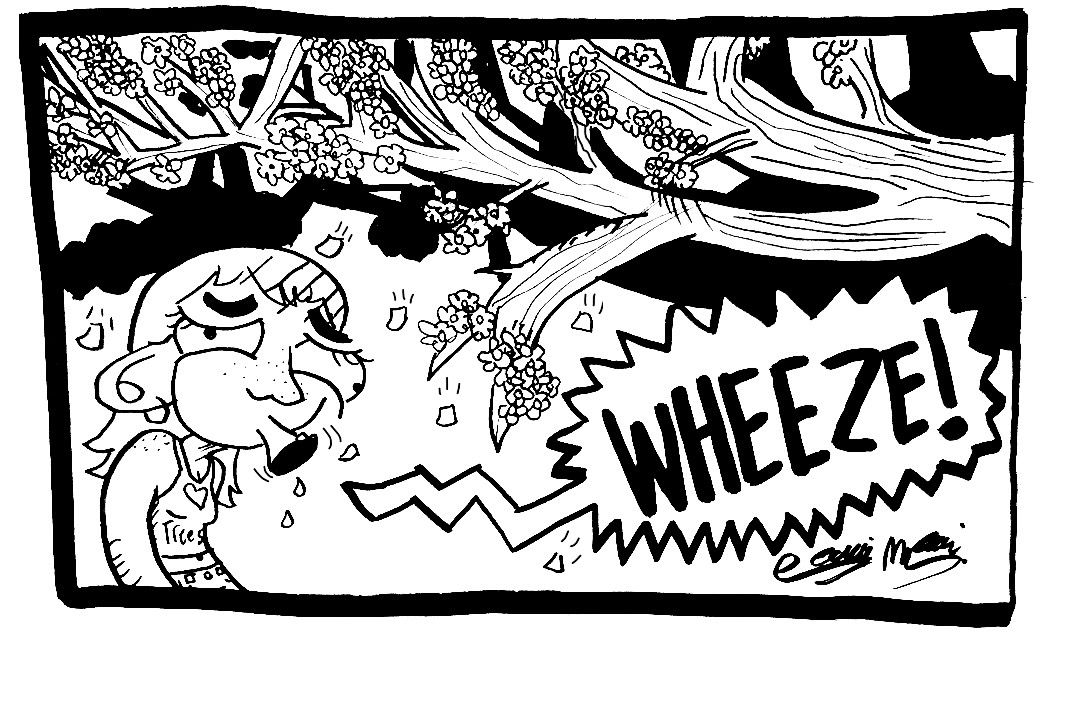Since the pandemic began two years ago, masking has become an integral part of my wardrobe. There is no doubt that masks began as a hindrance to the way I breathed and to the way I looked at other people. Soon after masks became the norm, they turned even closest friends and family members into strangers. Wearing a mask signified distance and wariness, even in the face of mutually understood precaution. But as masked gatherings became the norm either in one’s homes or in public places like the mall and restaurants, they soon became my acquaintances. I found myself using the small piece of fabric to complement the colors of the rest of my outfit or the color of my hair. They protected my sometimes tired-looking expressions, and oftentimes, they brought a distinct attention to the eyes.
Over the course of the pandemic, as I looked at my own masked reflection, in windows on the Metro, in store mirrors, on FaceTime with friends and over Zoom during my classes, I stared directly into my eyes. I appreciated their intensity, and I was prompted to do the same when I looked at my peers. Masks refocused my attention to concentrate on the shape of my face, my hair and how one complements the other. As an insecure person who’s particularly touchy about my looks, masks began simply as a way to cover my face but ended up becoming a tool to refocus my concentration on making eye contact with myself and others.
Before the pandemic, my eyes used to travel to my nose, to my mouth, my cheeks. When I looked in the mirror, I analyzed every inch, usually trying to rearrange it in a way to make it better. But every day since I’ve worn a mask, my focus has been on my eyes. Without the distraction of thinking about the rest of my face, I feel more self-assured, less critical and more at peace with myself. Even as I become more comfortable taking my mask off in public, I’m glad that my brain got used to the idea of my eyes and my eyebrows. Once I became confident in those two significant features, the confidence about the rest of my face followed. Instead of nitpicking specific features of my face, I now see that the rest of my features are only in service to my frame, my eyes and my eyebrows.
For someone with little interest in fashion and a crippling insecurity when it comes to wearing new kinds of clothes, masks also became a fun way to personalize an article of clothing that everybody was wearing. Previously, I had struggled to match my sense of style with that of current trends because I was afraid that I would be ridiculed or that I didn’t look good enough to try new clothes on. But with masks, I could easily participate in choosing which cuts I liked and which material I was most comfortable with. Not only did masks help with my self-perception, they also allowed me to go outside of my usually indifferent attitude toward pants or tops.
Seeing celebrities wear masks that I could afford was a fun way to connect to the fashion zeitgeist. Celebrities began using them to complement the rest of their wardrobe like Harry Styles at last years’ Grammys or Zendaya at last year’s Academy Awards. Fashion designers also embraced masks as a welcome addition to the red carpet. Whether they matched or complemented the patterns of the rest of their outfits, these masks were heightened versions of the ones us plebs wear every day to school or work. Seeing these celebrities matching their mask to their appearance prompted me to look at what type of mask I wanted to wear, whether it was a KN95, a black surgical mask or cloth masks of different colors and shapes, and see which one might frame my face the best. Once I saw Timothée Chalamet wear a blue KN95 to match his blue suit at the Paris Dune premiere last year, I knew I wanted to get a black version to match the color of my hair. When I did, I felt more connected with fashion trends and closer to one of my favorite actors. Instead of battling my inner fashion demons to buy a new pair of pants, all I had to do was get a new mask and choose a color I liked.
Masks are not only a necessity to protect against COVID-19, but they have also become a significant article of clothing for me. By forcing me to reckon with just my eyes, and not the entirety of my face, they have eased me into feeling confident about my entire face. They didn’t ask me to become confident overnight, like so many people without such insecurities do, but instead slowly reintroduced me to myself by asking me to just make eye contact.
Shreeya Aranake, a senior majoring in history, is the contributing opinions editor.


